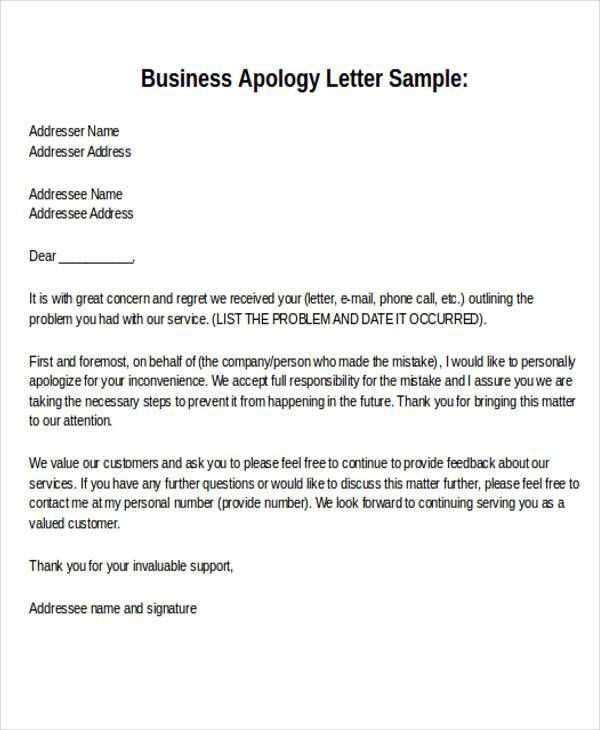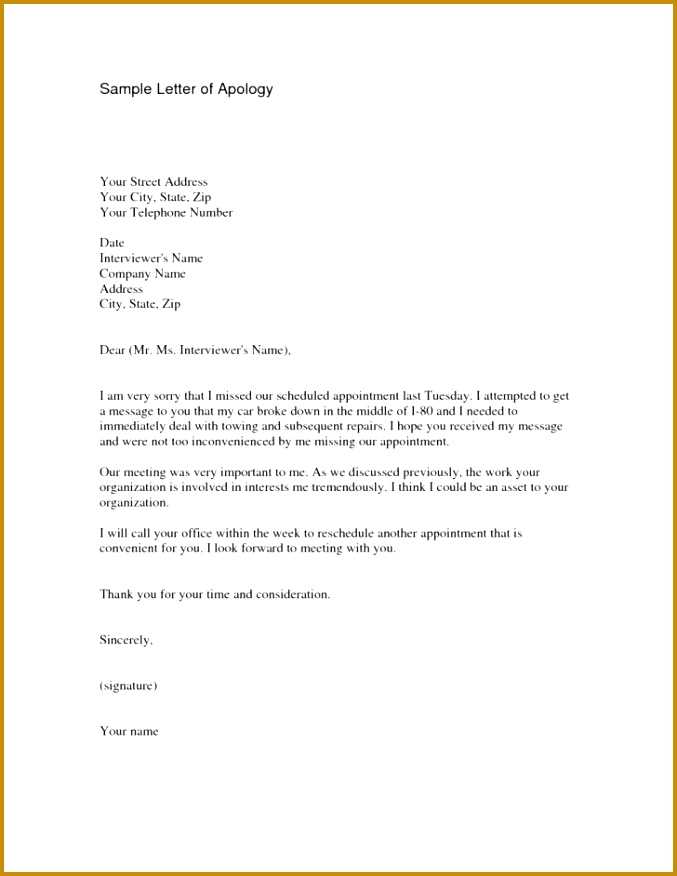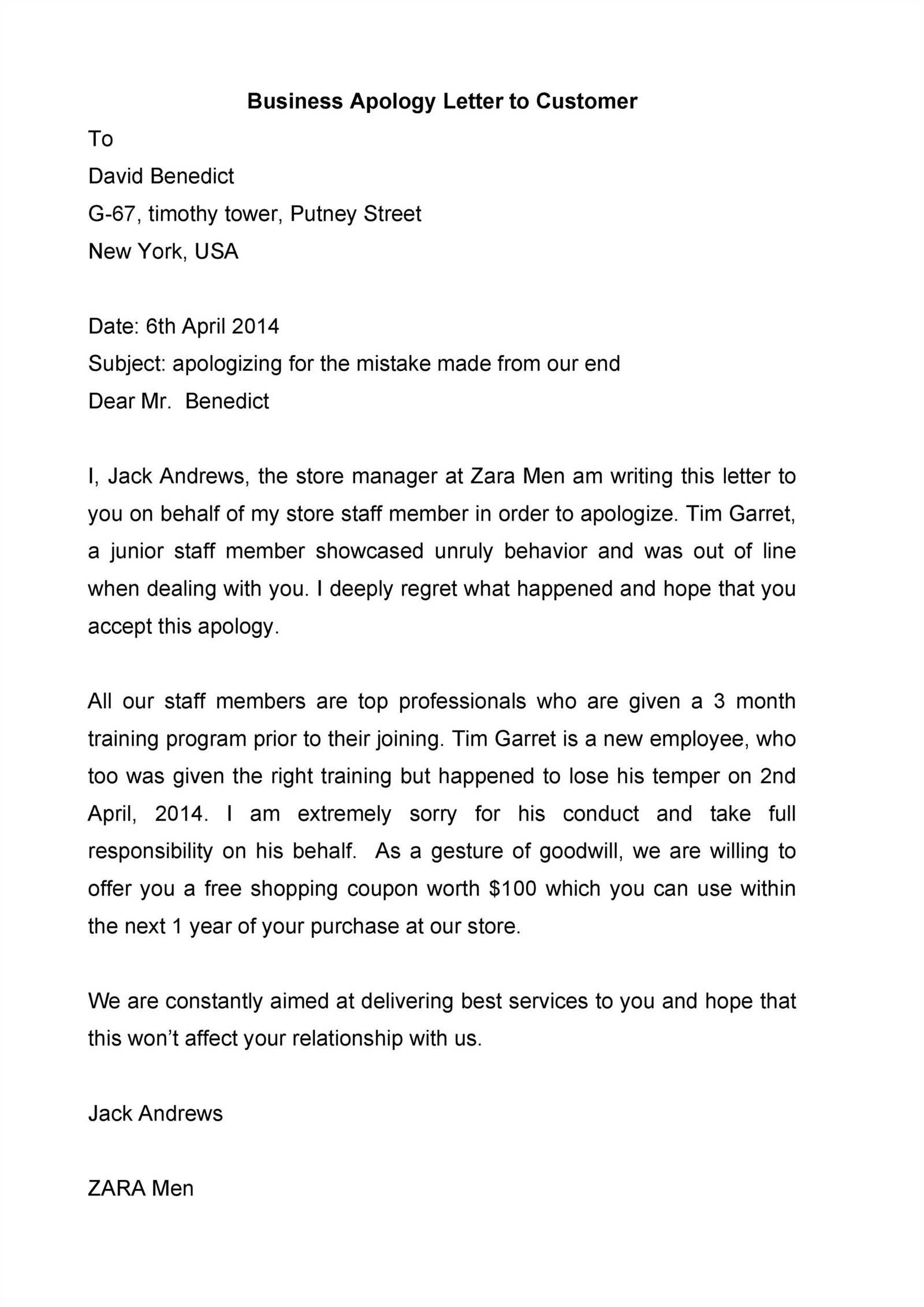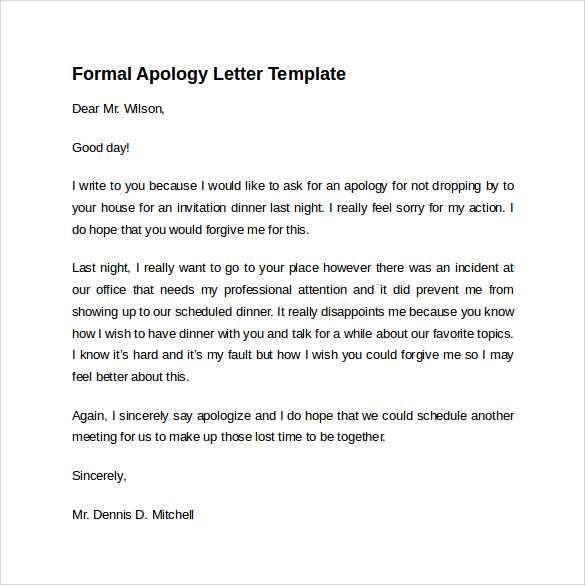Template Apology Letter Examples for Every Occasion

When we hurt or disappoint someone, offering a written expression of remorse can help to restore relationships. This form of communication provides a clear and thoughtful way to convey regret and acknowledge mistakes. Crafting the right message is important, as it ensures sincerity and opens the door for reconciliation.
Why Written Apologies Matter

Sending a carefully worded message is often seen as a gesture of respect. It allows individuals to express their feelings without the pressure of face-to-face interaction. Additionally, it gives the recipient time to process the sentiment and respond in their own time. A well-thought-out note can strengthen connections and rebuild trust.
Steps to Craft an Effective Message
- Acknowledge the mistake: Clearly state what went wrong and take responsibility for the situation.
- Express regret: Show genuine sorrow for the hurt caused.
- Offer a solution or commitment: Mention how you plan to prevent the issue from recurring or what actions you’ll take to make amends.
Common Pitfalls to Avoid

It’s easy to fall into certain traps when crafting a message of regret. Avoid the following:
- Excuses: Never shift the blame or make excuses. Accept full responsibility.
- Over-apologizing: Saying sorry too many times can diminish the sincerity of your words.
- Vague statements: Be specific about what you are apologizing for to show that you truly understand the issue.
Personal vs. Professional Situations
The tone and structure of your message will vary depending on the context. For personal matters, a heartfelt and warm tone is appropriate, while professional situations may require a more formal and concise approach. Tailoring your response to the nature of the relationship ensures that the message resonates well with the recipient.
Why Use a Written Expression of Regret
In situations where misunderstandings or mistakes occur, drafting a thoughtful message of regret can be a powerful tool for mending relationships. Whether personal or professional, this form of communication allows the sender to express sincere remorse and foster trust. A well-crafted note can significantly impact the resolution of conflicts and pave the way for understanding.
Key elements of a sincere communication include taking responsibility for the mistake, conveying genuine regret, and offering a path toward resolution. These aspects ensure the recipient feels heard and valued, helping to restore the connection between both parties.
How to Tailor Your Message

To create a meaningful response, it is important to adapt the message to fit the specific situation. Customizing the content ensures that it aligns with the recipient’s emotions and the severity of the issue. Personalizing the tone and language shows that you care about the particular circumstances, making the gesture more impactful.
Improving Your Writing for Regretful Situations

Effective communication requires more than just the right words; it’s about the way they are presented. When crafting a note of regret, focus on clarity, empathy, and conciseness. Avoid over-complicating your message, and be sure to stay direct without being blunt. Strive for a balance between sincerity and professionalism to ensure your message is well-received.
Using Written Regret in Professional Settings

In the business world, clear and respectful communication can prevent misunderstandings from escalating. When addressing an issue in a professional context, keep the tone respectful and formal. Recognizing the importance of maintaining a professional relationship while offering a genuine apology helps maintain respect and trust in the workplace.
Addressing Different Scenarios of Regret
Every situation calls for a unique approach. Whether you are dealing with a customer, colleague, friend, or family member, the way you frame your message of regret will vary. Assess the emotional impact of the situation and adjust your response to reflect the appropriate level of formality and care. Tailoring your message to the recipient’s needs ensures that your words come across as genuine and thoughtful.